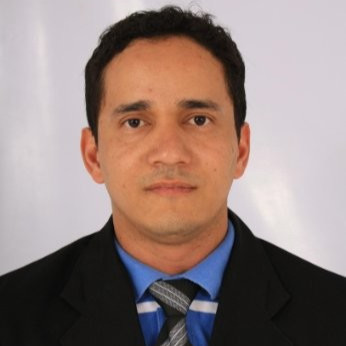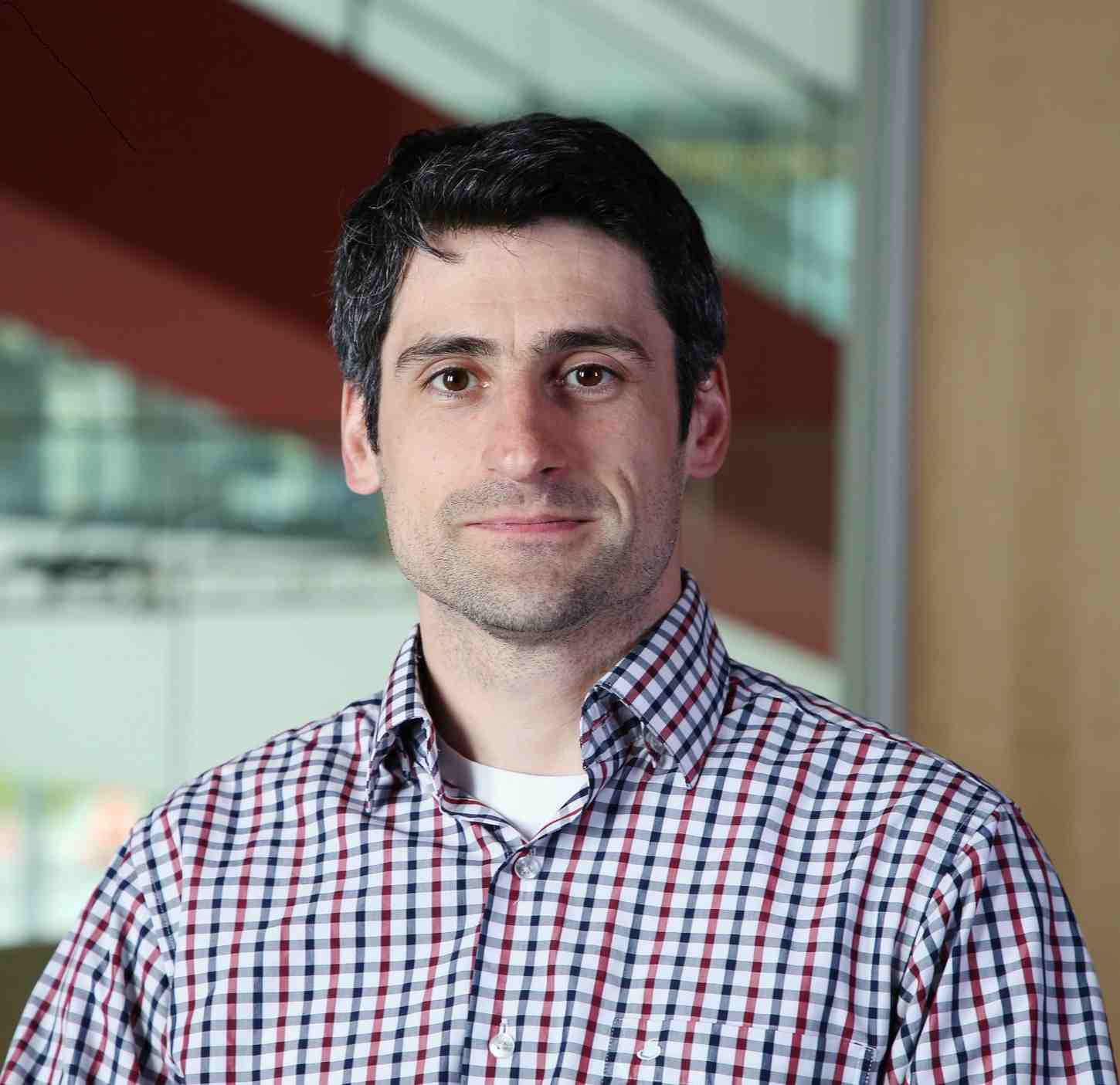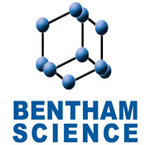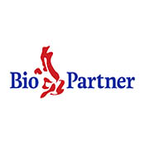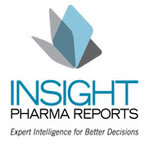Sessions and Tracks
In accumulation to the multidisciplinary talks, Keynote sessions, Plenary Talks and Poster Presentations relevant to cancer & oncology research, the Euro Cancer 2024 is a complete 2-days event with board considerations.
Euro Cancer 2024 has been designed with many interesting and informative scientific sessions; it includes all possible aspects of oncology research.
The conference is CME & CPD Accredited.
Track 1: Cancer Therapy
Cancer therapy encompasses a range of treatments aimed at eradicating or controlling cancer cells. Common approaches include surgery to remove tumors, radiation therapy to target and destroy cancer cells with high-energy rays, and chemotherapy to kill cancer cells using drugs. Targeted therapies and immunotherapies work by focusing on specific molecules involved in cancer growth or by harnessing the immune system to attack cancer cells. Hormone therapy blocks or removes hormones that fuel certain cancers. Each treatment option is tailored to the individual, depending on the cancer type, stage, and overall health. Advances continue to improve effectiveness and reduce side effects.
Related Topics: Cancer 2024 | Cancer Conferences | Oncology Conferences | Oncology Conferences | Euro Cancer 2024 | Cancer Meetings | Cancer Science Conferences | Breast Cancer conferences | Head & Neck Cancer Conferences | Cancer Therapy Conferences | Skin Cancer Conferences | Lung Cancer Conferences | Gastric Cancer Conferences | Prostate Cancer Conferences | Cancer Conferences Europe | Cervical Cancer Conferences | Brain Cancer Conferences | Pancreatic Cancer Conferences | Colon Cancer Conferences | Colorectal Cancer Conferences
Track 2: Cancer Research
Cancer research focuses on understanding the complexities of cancer to develop effective treatments and preventive measures. It encompasses studying cancer biology, identifying genetic and environmental risk factors, and exploring new therapies. Researchers investigate how cancers grow, spread, and respond to various treatments, including targeted therapies and immunotherapies. Clinical trials play a crucial role in evaluating new treatments and improving existing ones. Advances in cancer research aim to enhance early detection, personalize treatment, and ultimately find cures. By continually expanding knowledge and innovation, cancer research strives to reduce the burden of cancer and improve patient outcomes globally.
Related Topics: Cancer 2024 | Cancer Conferences | Oncology Conferences | Oncology Conferences | Euro Cancer 2024 | Cancer Meetings | Cancer Science Conferences | Breast Cancer conferences | Head & Neck Cancer Conferences | Cancer Therapy Conferences | Skin Cancer Conferences | Lung Cancer Conferences | Gastric Cancer Conferences | Prostate Cancer Conferences | Cancer Conferences Europe | Cervical Cancer Conferences | Brain Cancer Conferences | Pancreatic Cancer Conferences | Colon Cancer Conferences | Colorectal Cancer Conferences
Track 3: Types of Cancer
There are numerous types of cancer, each originating in different tissues or organs. The most common types include breast cancer, which develops in breast tissue, and lung cancer, often caused by smoking or environmental factors. Skin cancer, such as melanoma, arises from skin cells. Prostate cancer affects the male reproductive system, while colorectal cancer targets the colon or rectum. Liver, kidney, pancreatic, and stomach cancers affect various abdominal organs, while sarcomas originate in bones or connective tissues. Head and neck cancers develop in the throat, nose, or mouth. Leukemia and lymphoma are blood cancers affecting the immune system. Gynecologic cancers, including ovarian and cervical cancers, specifically affect women’s reproductive organs. Understanding these types helps guide diagnosis and treatment strategies.
Related Topics: Cancer 2024 | Cancer Conferences | Oncology Conferences | Oncology Conferences | Euro Cancer 2024 | Cancer Meetings | Cancer Science Conferences | Breast Cancer conferences | Head & Neck Cancer Conferences | Cancer Therapy Conferences | Skin Cancer Conferences | Lung Cancer Conferences | Gastric Cancer Conferences | Prostate Cancer Conferences | Cancer Conferences Europe | Cervical Cancer Conferences | Brain Cancer Conferences | Pancreatic Cancer Conferences | Colon Cancer Conferences | Colorectal Cancer Conferences
Track 4: Cancer Prevention
Cancer prevention involves strategies to reduce the risk of developing cancer. Key measures include adopting a healthy lifestyle, such as maintaining a balanced diet, engaging in regular physical activity, and avoiding tobacco and excessive alcohol consumption. Vaccinations, like those against human papillomavirus (HPV) and hepatitis B, can protect against certain cancers. Regular screenings and early detection, such as mammograms and colonoscopies, help identify cancers at an early, more treatable stage. Additionally, protecting skin from excessive sun exposure and managing environmental and occupational risks are important. These proactive measures collectively contribute to reducing cancer incidence and improving overall health.
Related Topics: Cancer 2024 | Cancer Conferences | Oncology Conferences | Oncology Conferences | Euro Cancer 2024 | Cancer Meetings | Cancer Science Conferences | Breast Cancer conferences | Head & Neck Cancer Conferences | Cancer Therapy Conferences | Skin Cancer Conferences | Lung Cancer Conferences | Gastric Cancer Conferences | Prostate Cancer Conferences | Cancer Conferences Europe | Cervical Cancer Conferences | Brain Cancer Conferences | Pancreatic Cancer Conferences | Colon Cancer Conferences | Colorectal Cancer Conferences
Track 5: Oncology
Oncology is a branch of medicine focused on the study, diagnosis, treatment, and prevention of cancer. There are various types of cancer, including breast cancer, skin cancer, and organ-specific cancers. Cancer biology examines the molecular and cellular changes that cause cancer, while cancer treatment encompasses surgery, chemotherapy, radiation, and immunotherapy. COVID-19 significantly impacted cancer care by delaying diagnosis and treatments. AI in cancer improves diagnosis, imaging, and treatment precision. Cancer epidemiology studies cancer patterns in populations. Pediatric and neuro-oncology address cancers in children and the brain, respectively. Imaging and biomarkers aid in early detection. Robotic oncology and radiation oncology are advancing treatment techniques. The cancer drug market continues to expand, with a focus on targeted therapies and new pharmacological developments.
Related Topics: Cancer 2024 | Cancer Conferences | Oncology Conferences | Oncology Conferences | Euro Cancer 2024 | Cancer Meetings | Cancer Science Conferences | Breast Cancer conferences | Head & Neck Cancer Conferences | Cancer Therapy Conferences | Skin Cancer Conferences | Lung Cancer Conferences | Gastric Cancer Conferences | Prostate Cancer Conferences | Cancer Conferences Europe | Cervical Cancer Conferences | Brain Cancer Conferences | Pancreatic Cancer Conferences | Colon Cancer Conferences | Colorectal Cancer Conferences
Track 6: Breast Cancer
Recent advancements in breast cancer research have opened new horizons in treatment and understanding. Innovations like targeted therapies and immunotherapies are transforming treatment outcomes by attacking cancer cells more precisely and effectively. Additionally, advancements in early detection methods, such as liquid biopsies and imaging technologies, offer improved chances for early intervention and better prognoses. These developments signify a hopeful shift towards more personalized and effective treatments, aiming to enhance survival rates and quality of life for breast cancer patients.
Related Topics: Cancer 2024 | Cancer Conferences | Oncology Conferences | Oncology Conferences | Euro Cancer 2024 | Cancer Meetings | Cancer Science Conferences | Breast Cancer conferences | Head & Neck Cancer Conferences | Cancer Therapy Conferences | Skin Cancer Conferences | Lung Cancer Conferences | Gastric Cancer Conferences | Prostate Cancer Conferences | Cancer Conferences Europe | Cervical Cancer Conferences | Brain Cancer Conferences | Pancreatic Cancer Conferences | Colon Cancer Conferences | Colorectal Cancer Conferences
Track 7: Radiation Therapy
Use of Radiation to kill diseased cells has become a standard diagnosis option for a wide range of malignancies. It utilizes X-rays, gamma rays, electron beams or protons to treat cancer. Radiotherapy can be used in three modalities: – Adjuvant radiotherapy, Palliative radiotherapy and Curative radiotherapy. Among all the available Anti-cancer therapies, Radiation therapy is the most conventional method for treating Cancers. Success depends on early diagnosis, the volume and histological nature of the Cancer. Techniques in Radiation therapy include Gamma Knife surgery, Medical dosimetry, Three-Dimensional Conformal Radiation Therapy, Triggered imaging radiosurgery, Brachytherapy, External Beam Radiation Therapy, Intensity Modulated Radiation Therapy, mage-Guided Radiotherapy, radioisotope therapy, Total Body Irradiation, Total Skin Irradiation and Stereotactic body radiation therapy.
Related Topics: Cancer 2024 | Cancer Conferences | Oncology Conferences | Oncology Conferences | Euro Cancer 2024 | Cancer Meetings | Cancer Science Conferences | Breast Cancer conferences | Head & Neck Cancer Conferences | Cancer Therapy Conferences | Skin Cancer Conferences | Lung Cancer Conferences | Gastric Cancer Conferences | Prostate Cancer Conferences | Cancer Conferences Europe | Cervical Cancer Conferences | Brain Cancer Conferences | Pancreatic Cancer Conferences | Colon Cancer Conferences | Colorectal Cancer Conferences
Track 8: Cancer Case reports
Most cancers are a set of more than a hundred syndromes that expand all the way through time in any of the body’s materials. Each type of cancer has its particular capabilities; the simple procedures that produce most cancers are pretty comparable in all sorts of the diseases. A case record is the identified document of signs and symptoms, prognosis, remedies of the exceptional wounded of positive scientific records with unique therapeutic strategies. As about 7.6 million of latest instances of malignancy documented every year, half of them are from developing countries. Case reports will be up to date from all the statistics from the beyond.
Related Topics: Cancer 2024 | Cancer Conferences | Oncology Conferences | Oncology Conferences | Euro Cancer 2024 | Cancer Meetings | Cancer Science Conferences | Breast Cancer conferences | Head & Neck Cancer Conferences | Cancer Therapy Conferences | Skin Cancer Conferences | Lung Cancer Conferences | Gastric Cancer Conferences | Prostate Cancer Conferences | Cancer Conferences Europe | Cervical Cancer Conferences | Brain Cancer Conferences | Pancreatic Cancer Conferences | Colon Cancer Conferences | Colorectal Cancer Conferences
Track 9: Neuro-Oncology
Neuro-oncology is a specialized field focused on the diagnosis and treatment of tumors in the brain, spinal cord, and nervous system. These cancers can be primary tumors, such as gliomas, meningiomas, and astrocytomas, which originate in the central nervous system, or metastatic tumors that spread from other parts of the body. Glioblastoma, an aggressive type of brain tumor, is among the most challenging to treat. Symptoms of neuro-oncological cancers can include headaches, seizures, cognitive changes, and neurological deficits, depending on the tumor's location. Treatment typically involves a combination of surgery, radiation therapy, and chemotherapy. Advances in immunotherapy, targeted therapies, and AI-guided imaging are offering new hope in improving patient outcomes, as neuro-oncology remains a critical area of research and innovation.
Related Topics: Cancer 2024 | Cancer Conferences | Oncology Conferences | Oncology Conferences | Euro Cancer 2024 | Cancer Meetings | Cancer Science Conferences | Breast Cancer conferences | Head & Neck Cancer Conferences | Cancer Therapy Conferences | Skin Cancer Conferences | Lung Cancer Conferences | Gastric Cancer Conferences | Prostate Cancer Conferences | Cancer Conferences Europe | Cervical Cancer Conferences | Brain Cancer Conferences | Pancreatic Cancer Conferences | Colon Cancer Conferences | Colorectal Cancer Conferences
Track 10: Role of AI in Cancer
Artificial intelligence (AI) is revolutionizing cancer care by enhancing early detection, diagnosis, treatment planning, and research. AI algorithms, particularly in medical imaging, can quickly analyze scans such as MRIs or CTs, helping radiologists detect abnormalities with greater accuracy and speed. In pathology, AI can differentiate between cancerous and non-cancerous tissues more efficiently than traditional methods. Predictive models powered by AI assess a patient's cancer progression and treatment responses, allowing for personalized treatment plans. AI also aids in drug discovery, identifying potential new therapies faster by analyzing vast datasets. Furthermore, AI assists in managing clinical data, improving workflow, and minimizing human error. Overall, AI is transforming cancer care by making diagnosis and treatments more precise, efficient, and accessible.
Related Topics: Cancer 2024 | Cancer Conferences | Oncology Conferences | Oncology Conferences | Euro Cancer 2024 | Cancer Meetings | Cancer Science Conferences | Breast Cancer conferences | Head & Neck Cancer Conferences | Cancer Therapy Conferences | Skin Cancer Conferences | Lung Cancer Conferences | Gastric Cancer Conferences | Prostate Cancer Conferences | Cancer Conferences Europe | Cervical Cancer Conferences | Brain Cancer Conferences | Pancreatic Cancer Conferences | Colon Cancer Conferences | Colorectal Cancer Conferences
Track 11: Cancer Personalized Medicine
Cancer personalized medicine tailors treatment to the individual characteristics of a patient’s cancer, based on their genetic makeup and the specific mutations driving the disease. This approach contrasts with one-size-fits-all treatments like chemotherapy. By analyzing the genetic profile of a tumor, doctors can identify targeted therapies, such as drugs that inhibit cancer-specific mutations, making treatments more effective and reducing side effects. Personalized medicine includes techniques like genomic testing, which guides treatment choices, and precision therapies, such as targeted therapies or immunotherapies. This approach is especially useful in cancers like breast, lung, and colorectal, where specific mutations can be identified and treated.
Related Topics: Cancer 2024 | Cancer Conferences | Oncology Conferences | Oncology Conferences | Euro Cancer 2024 | Cancer Meetings | Cancer Science Conferences | Breast Cancer conferences | Head & Neck Cancer Conferences | Cancer Therapy Conferences | Skin Cancer Conferences | Lung Cancer Conferences | Gastric Cancer Conferences | Prostate Cancer Conferences | Cancer Conferences Europe | Cervical Cancer Conferences | Brain Cancer Conferences | Pancreatic Cancer Conferences | Colon Cancer Conferences | Colorectal Cancer Conferences
Track 12: Cancer Imaging
Cancer imaging is a critical tool in diagnosing, staging, and monitoring the progression of cancer. It involves various technologies that visualize tumors and abnormal tissues within the body. X-rays, including mammography, are commonly used for breast cancer detection. CT scans provide detailed cross-sectional images, while MRI offers high-resolution images of soft tissues, aiding in the detection of brain, spinal cord, and organ cancers. PET scans detect metabolic activity, highlighting areas of abnormal cell growth. Ultrasound is frequently used to evaluate tumors in organs like the liver or ovaries. Imaging is also crucial in guiding biopsies and tracking how well treatments, like chemotherapy or radiation, are working. Ongoing advancements in imaging technologies continue to improve early detection and treatment planning.
Related Topics: Cancer 2024 | Cancer Conferences | Oncology Conferences | Oncology Conferences | Euro Cancer 2024 | Cancer Meetings | Cancer Science Conferences | Breast Cancer conferences | Head & Neck Cancer Conferences | Cancer Therapy Conferences | Skin Cancer Conferences | Lung Cancer Conferences | Gastric Cancer Conferences | Prostate Cancer Conferences | Cancer Conferences Europe | Cervical Cancer Conferences | Brain Cancer Conferences | Pancreatic Cancer Conferences | Colon Cancer Conferences | Colorectal Cancer Conferences
Track 13: Sarcoma
Sarcoma is a rare type of cancer that arises from connective tissues, including bones, muscles, fat, and cartilage. It is categorized into two main types: soft tissue sarcomas and bone sarcomas. Soft tissue sarcomas can occur in various locations, while bone sarcomas primarily affect the skeletal system. Symptoms may include swelling, pain, or lumps in affected areas, but they can be subtle and often overlooked. Diagnosis typically involves imaging tests and biopsy. Treatment options vary depending on the type and stage of sarcoma and may include surgery, radiation, and chemotherapy. Early detection is crucial for improving outcomes, as sarcomas can be aggressive and may metastasize. Ongoing research aims to enhance understanding and treatment of this complex cancer.
Related Topics: Cancer 2024 | Cancer Conferences | Oncology Conferences | Oncology Conferences | Euro Cancer 2024 | Cancer Meetings | Cancer Science Conferences | Breast Cancer conferences | Head & Neck Cancer Conferences | Cancer Therapy Conferences | Skin Cancer Conferences | Lung Cancer Conferences | Gastric Cancer Conferences | Prostate Cancer Conferences | Cancer Conferences Europe | Cervical Cancer Conferences | Brain Cancer Conferences | Pancreatic Cancer Conferences | Colon Cancer Conferences | Colorectal Cancer Conferences
Track 14: Cancer Immunology & Immunotherapy
Cancer immunology is a division of immunology that studies deals between the immune system and cancer cells. It is an arena of exploration that aims to ascertain cancer immunotherapies to treat and delay progression of the infection. Immunotherapies can be characterized as active, passive or hybrid (active and passive). The immune response, comprising the recognition of cancer-specific antigens, methods the basis of targeted therapy (such as vaccines and antibody therapies) and tumour marker-based diagnostic tests.
Related Topics: Cancer 2024 | Cancer Conferences | Oncology Conferences | Oncology Conferences | Euro Cancer 2024 | Cancer Meetings | Cancer Science Conferences | Breast Cancer conferences | Head & Neck Cancer Conferences | Cancer Therapy Conferences | Skin Cancer Conferences | Lung Cancer Conferences | Gastric Cancer Conferences | Prostate Cancer Conferences | Cancer Conferences Europe | Cervical Cancer Conferences | Brain Cancer Conferences | Pancreatic Cancer Conferences | Colon Cancer Conferences | Colorectal Cancer Conferences
Track 15: Cancer Diagnosis
Diagnostics plays an important role throughout Cancer treatment. Before treatment, to accurately locate Tumours, stage the disease, and determine an appropriate combination of cancer diagnosis. Diagnostics are used to track the size of the tumour, progression of the disease, and patient response to treatment, and modify your treatment accordingly. To confirm the diagnosis of most cancers, a liquid Biopsy needs is to be performed in which a tissue sample is removed from the tumour which occurred initially and studied under a microscope for detecting cancer cells. Endoscopy can be done by implanting a flexible plastic tube with a minute camera into body cavities or organs. Cancer Screening tests are used to detect the possibility of tumour cells which is present before symptoms occur. To identify cancer at its initial stage, different types of diagnostic tests are used to Screen at-risk individuals, Monitor treatment efficacy and disease progression or recurrence, Predict prognosis and direct treatment, Monitor an asymptomatic population for the early discovery of cancer, Earlier detection and treatment consequently drops cancer mortality, Diagnose a primary cancer and recognize the cancer subtype after whole cancer treatment, to display for any signs of metastasis or recurrence.
Related Topics: Cancer 2024 | Cancer Conferences | Oncology Conferences | Oncology Conferences | Euro Cancer 2024 | Cancer Meetings | Cancer Science Conferences | Breast Cancer conferences | Head & Neck Cancer Conferences | Cancer Therapy Conferences | Skin Cancer Conferences | Lung Cancer Conferences | Gastric Cancer Conferences | Prostate Cancer Conferences | Cancer Conferences Europe | Cervical Cancer Conferences | Brain Cancer Conferences | Pancreatic Cancer Conferences | Colon Cancer Conferences | Colorectal Cancer Conferences
Track 16: Cancer Drugs
Cancer or its dealings can lower your resistance to infection and make you more likely to catch the other diseases. There are many diverse types of cancer drugs. Some medications can treat cancer and the others help to dismiss symptoms such as aching and sickness. The type of drugs you need to use for cure of your cancer depends on what type of cancer you have. Drug therapies work in various ways to extinguish cancer cells and discontinue them from diffusion or slow down their progress. Anticancer drugs or anticancer agents are used in Cancer. Drugs may also be used to decrease or relieve side effects of cancer and its treatment.
Related Topics: Cancer 2024 | Cancer Conferences | Oncology Conferences | Oncology Conferences | Euro Cancer 2024 | Cancer Meetings | Cancer Science Conferences | Breast Cancer conferences | Head & Neck Cancer Conferences | Cancer Therapy Conferences | Skin Cancer Conferences | Lung Cancer Conferences | Gastric Cancer Conferences | Prostate Cancer Conferences | Cancer Conferences Europe | Cervical Cancer Conferences | Brain Cancer Conferences | Pancreatic Cancer Conferences | Colon Cancer Conferences | Colorectal Cancer Conferences
Track 17: Hematology- Oncology
Hematology- Oncology is the division of medicine associated to the study of diagnosis, treatment, and prevention of blood diseases and cancer. It includes such diseases as iron deficiency anemia, hemophilia, sickle cell disease, the thalassemia, leukemia and lymphoma. The study of hematology integrates clinical and laboratory medicine. Leukemia affects your white blood cells. These are major, infection-fighting part of your immune system, made in your bone marrow. The cancerous formation affecting the lymphocytes is called as lymphoma. Lymphocytes are one of the variabilities of white blood corpuscles. As part of Myeloma, the plasma is affected by the tumor cells. Blood cancers can cause many different symptoms. Some are mutual across all blood cancers, others are more distinctive of types of blood cancer. For example, lymphomas can be recognized by swollen lymph nodes and one of the most common symptoms of myeloma is bone pain, especially in the back.
Related Topics: Cancer 2024 | Cancer Conferences | Oncology Conferences | Oncology Conferences | Euro Cancer 2024 | Cancer Meetings | Cancer Science Conferences | Breast Cancer conferences | Head & Neck Cancer Conferences | Cancer Therapy Conferences | Skin Cancer Conferences | Lung Cancer Conferences | Gastric Cancer Conferences | Prostate Cancer Conferences | Cancer Conferences Europe | Cervical Cancer Conferences | Brain Cancer Conferences | Pancreatic Cancer Conferences | Colon Cancer Conferences | Colorectal Cancer Conferences
Track 18: Cancer & Stem Cell Therapy
Stem-cell therapy is the use of stem cells to treat or avoid a disease or illness. Stem Cells and Tumours cancer cells also have the characteristic which is also associated with normal stems cells. Stem Cell Therapy is using to prevent the disease. Stems cells transplant is used to treatment of cancer like leukaemia, multiple myeloma & lymphoma. Cord Blood Stem and Cancer cord blood contains haematopoietic (blood) stem cell. They have long been used in stem cell treatments for leukaemia, blood and bone marrow disorders when chemotherapy is used.
Related Topics: Cancer 2024 | Cancer Conferences | Oncology Conferences | Oncology Conferences | Euro Cancer 2024 | Cancer Meetings | Cancer Science Conferences | Breast Cancer conferences | Head & Neck Cancer Conferences | Cancer Therapy Conferences | Skin Cancer Conferences | Lung Cancer Conferences | Gastric Cancer Conferences | Prostate Cancer Conferences | Cancer Conferences Europe | Cervical Cancer Conferences | Brain Cancer Conferences | Pancreatic Cancer Conferences | Colon Cancer Conferences | Colorectal Cancer Conferences
Track 19: Head and Neck Cancer
Head and neck cancer encompasses a diverse group of malignancies that occur in the throat, mouth, nose, and surrounding areas. Common types include squamous cell carcinoma, often linked to tobacco and alcohol use, as well as human papillomavirus (HPV) infections. Symptoms can include persistent sore throat, difficulty swallowing, lumps, or changes in voice. Diagnosis typically involves imaging studies and biopsies. Treatment strategies may include surgery, radiation therapy, and chemotherapy, tailored to the cancer's type and stage. Early detection significantly improves prognosis, but many patients face challenges related to treatment side effects, including difficulties with speech and swallowing. Research continues to focus on better prevention, targeted therapies, and improving quality of life for survivors of head and neck cancer.
Related Topics: Cancer 2024 | Cancer Conferences | Oncology Conferences | Oncology Conferences | Euro Cancer 2024 | Cancer Meetings | Cancer Science Conferences | Breast Cancer conferences | Head & Neck Cancer Conferences | Cancer Therapy Conferences | Skin Cancer Conferences | Lung Cancer Conferences | Gastric Cancer Conferences | Prostate Cancer Conferences | Cancer Conferences Europe | Cervical Cancer Conferences | Brain Cancer Conferences | Pancreatic Cancer Conferences | Colon Cancer Conferences | Colorectal Cancer Conferences
Track 20: Cancer Pharmacology
Cancer pharmacology plays an important role in medication development. In both the laboratory and the hospital, cancer pharmacology has had to adjust to the changing face of drug expansion by forming experimental representations and target orientated methods. It also emphases on developing new approaches to the clinical dealing of cancer over research that bridges the arenas of molecular carcinogenesis, biochemical pharmacology, radiation biology, and clinical pharmacology. It usually involves the pharmacological and oncological aspects of drugs at both.
Related Topics: Cancer 2024 | Cancer Conferences | Oncology Conferences | Oncology Conferences | Euro Cancer 2024 | Cancer Meetings | Cancer Science Conferences | Breast Cancer conferences | Head & Neck Cancer Conferences | Cancer Therapy Conferences | Skin Cancer Conferences | Lung Cancer Conferences | Gastric Cancer Conferences | Prostate Cancer Conferences | Cancer Conferences Europe | Cervical Cancer Conferences | Brain Cancer Conferences | Pancreatic Cancer Conferences | Colon Cancer Conferences | Colorectal Cancer Conferences
Track 21: Cancer Epidemiology
Cancer epidemiology studies the patterns, causes, and effects of cancer within populations. It aims to identify risk factors, such as genetics, lifestyle, and environmental exposures, that contribute to cancer development. Researchers analyze incidence rates (new cancer cases), prevalence (total cases), and mortality (death rates) to understand trends in different demographic groups. Epidemiological studies help uncover connections between behaviors like smoking, diet, or UV exposure and cancer risk, enabling preventive measures. The field also tracks cancer disparities, revealing that certain populations have higher cancer rates due to factors like socio-economic status, access to healthcare, or geographic location. Insights from cancer epidemiology guide public health strategies, screening programs, and policies aimed at reducing cancer incidence and improving patient outcomes worldwide.
Related Topics: Cancer 2024 | Cancer Conferences | Oncology Conferences | Oncology Conferences | Euro Cancer 2024 | Cancer Meetings | Cancer Science Conferences | Breast Cancer conferences | Head & Neck Cancer Conferences | Cancer Therapy Conferences | Skin Cancer Conferences | Lung Cancer Conferences | Gastric Cancer Conferences | Prostate Cancer Conferences | Cancer Conferences Europe | Cervical Cancer Conferences | Brain Cancer Conferences | Pancreatic Cancer Conferences | Colon Cancer Conferences | Colorectal Cancer Conferences
Track 22: Cancer Treatments
Cancer treatments vary based on the type, stage, and location of the cancer. The primary approaches include surgery, where the tumor is physically removed, and chemotherapy, which uses drugs to kill or slow the growth of cancer cells. Radiation therapy uses high-energy radiation to target cancerous cells, while immunotherapy boosts the body's immune system to fight cancer. Targeted therapies focus on specific molecules involved in cancer growth, offering precision treatment. Hormone therapy is used for cancers like breast and prostate that are influenced by hormones. Stem cell transplants help restore blood-forming stem cells after intensive treatments. Advances in precision medicine and AI are further personalizing treatment, improving effectiveness, and reducing side effects. Each method may be used alone or in combination.
Related Topics: Cancer 2024 | Cancer Conferences | Oncology Conferences | Oncology Conferences | Euro Cancer 2024 | Cancer Meetings | Cancer Science Conferences | Breast Cancer conferences | Head & Neck Cancer Conferences | Cancer Therapy Conferences | Skin Cancer Conferences | Lung Cancer Conferences | Gastric Cancer Conferences | Prostate Cancer Conferences | Cancer Conferences Europe | Cervical Cancer Conferences | Brain Cancer Conferences | Pancreatic Cancer Conferences | Colon Cancer Conferences | Colorectal Cancer Conferences
Track 23: Organ Specific Cancer
Organ-specific cancers are malignancies that originate in specific organs of the body, each with distinct characteristics and treatment protocols. Common types include lung, breast, prostate, liver, and colorectal cancers. The development of these cancers can be influenced by genetic, environmental, and lifestyle factors, such as smoking, diet, and exposure to toxins. Symptoms vary widely depending on the organ affected and may include unexplained weight loss, pain, or changes in function. Diagnosis typically involves imaging techniques, blood tests, and biopsies. Treatment approaches often include surgery, radiation therapy, chemotherapy, and targeted therapies. Early detection is vital for improving outcomes, as many organ-specific cancers can progress quickly. Ongoing research aims to enhance prevention, early detection, and personalized treatment options.
Related Topics: Cancer 2024 | Cancer Conferences | Oncology Conferences | Oncology Conferences | Euro Cancer 2024 | Cancer Meetings | Cancer Science Conferences | Breast Cancer conferences | Head & Neck Cancer Conferences | Cancer Therapy Conferences | Skin Cancer Conferences | Lung Cancer Conferences | Gastric Cancer Conferences | Prostate Cancer Conferences | Cancer Conferences Europe | Cervical Cancer Conferences | Brain Cancer Conferences | Pancreatic Cancer Conferences | Colon Cancer Conferences | Colorectal Cancer Conferences
Track 24: Cancer Biomarkers
Cancer biomarkers are molecules, genes, or proteins found in tissues, blood, or other body fluids that indicate the presence or progression of cancer. These biomarkers can be diagnostic, helping to detect cancer early, or prognostic, predicting the course of the disease. Predictive biomarkers guide treatment decisions by indicating how a patient might respond to specific therapies, such as targeted treatments or immunotherapies. Common biomarkers include HER2 in breast cancer, PSA in prostate cancer, and CA-125 for ovarian cancer. Advances in biomarker research are improving personalized medicine, allowing treatments to be tailored to an individual’s unique cancer profile. Additionally, cancer biomarkers aid in monitoring treatment efficacy and detecting recurrence, making them crucial tools in cancer management and therapy development.
Related Topics: Cancer 2024 | Cancer Conferences | Oncology Conferences | Oncology Conferences | Euro Cancer 2024 | Cancer Meetings | Cancer Science Conferences | Breast Cancer conferences | Head & Neck Cancer Conferences | Cancer Therapy Conferences | Skin Cancer Conferences | Lung Cancer Conferences | Gastric Cancer Conferences | Prostate Cancer Conferences | Cancer Conferences Europe | Cervical Cancer Conferences | Brain Cancer Conferences | Pancreatic Cancer Conferences | Colon Cancer Conferences | Colorectal Cancer Conferences
Track 25: Skin Cancer
Skin cancer is the most common type of cancer, primarily caused by ultraviolet (UV) radiation from the sun or tanning beds. There are three major types: basal cell carcinoma (BCC), squamous cell carcinoma (SCC), and melanoma. BCC is the most common and least aggressive, often appearing as pearly or flesh-colored bumps. SCC is more aggressive than BCC, often manifesting as scaly, red patches. Melanoma is the most dangerous, originating in pigment-producing cells (melanocytes) and spreading quickly if not treated early. Risk factors include fair skin, excessive sun exposure, family history, and having numerous moles. Prevention includes using sunscreen, avoiding tanning beds, and regular skin checks. Early detection is key, and treatments include surgery, radiation, and topical therapies.
Related Topics: Cancer 2024 | Cancer Conferences | Oncology Conferences | Oncology Conferences | Euro Cancer 2024 | Cancer Meetings | Cancer Science Conferences | Breast Cancer conferences | Head & Neck Cancer Conferences | Cancer Therapy Conferences | Skin Cancer Conferences | Lung Cancer Conferences | Gastric Cancer Conferences | Prostate Cancer Conferences | Cancer Conferences Europe | Cervical Cancer Conferences | Brain Cancer Conferences | Pancreatic Cancer Conferences | Colon Cancer Conferences | Colorectal Cancer Conferences
Track 26: Cancer: Lifestyle Connection and Nutrition
Many factors influence the development of cancer. Over the last 35 years, science has shown that physical activity, diet and body weight—especially being overheavy or obese is major risk influences for developing certain types of cancer. About a third of the most mutual cancers could be prohibited through lifestyle changes. The main interactive and environmental risk factors for cancer humanity in the world are related to diet use of addictive substances, sexual and generative health and contact to air pollution and use of polluted needles. The body’s capability to resist cancer may be facilitated by following a healthy diet, staying physically active, and avoiding excess body fat. Cancer and cancer treatments can also distress your body's ability to endure certain foods and use nutrients.
Related Topics: Cancer 2024 | Cancer Conferences | Oncology Conferences | Oncology Conferences | Euro Cancer 2024 | Cancer Meetings | Cancer Science Conferences | Breast Cancer conferences | Head & Neck Cancer Conferences | Cancer Therapy Conferences | Skin Cancer Conferences | Lung Cancer Conferences | Gastric Cancer Conferences | Prostate Cancer Conferences | Cancer Conferences Europe | Cervical Cancer Conferences | Brain Cancer Conferences | Pancreatic Cancer Conferences | Colon Cancer Conferences | Colorectal Cancer Conferences

